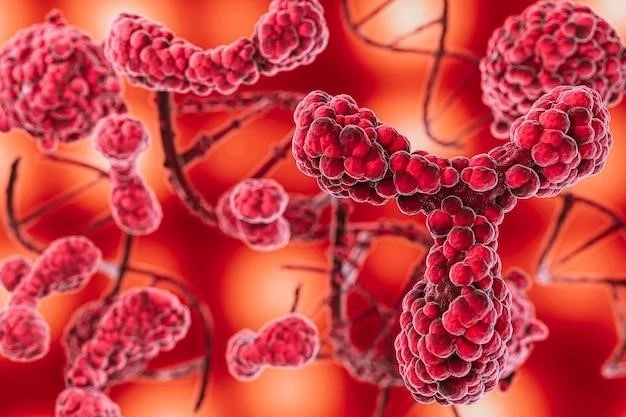Symptoms of Chronic Myelomonocytic Leukemia
Common Symptoms of chronic myelomonocytic leukemia may include fatigue, fever, night sweats,
weight loss, anemia, easy bruising, frequent infections, and enlarged spleen or liver.
Common Symptoms
Common symptoms of chronic myelomonocytic leukemia include fatigue, fever, night sweats, weight loss, anemia, easy bruising, frequent infections, and enlarged spleen or liver. These symptoms may vary in severity and can impact the quality of life of individuals affected by this condition.
Treatment Options for Chronic Myelomonocytic Leukemia
Chemotherapy and stem cell transplant are common treatment options for chronic myelomonocytic leukemia.
Chemotherapy
Chemotherapy, a systemic treatment involving drugs that kill cancer cells, is commonly used in chronic myelomonocytic leukemia. It can help control the growth of abnormal cells, manage symptoms, and improve overall quality of life for patients. Side effects may include nausea, hair loss, and increased risk of infections.
Stem Cell Transplant
Stem cell transplant, also known as a bone marrow transplant, is a treatment option for chronic myelomonocytic leukemia. It involves replacing diseased bone marrow with healthy stem cells to help the body produce normal blood cells. This procedure can offer the possibility of a long-term remission or cure for some patients, but it carries risks of complications and side effects.
Prognosis and Survival Rates of Chronic Myelomonocytic Leukemia
Factors affecting prognosis in chronic myelomonocytic leukemia include age, overall health,
genetic mutations, blood cell counts, and response to treatment.
Factors Affecting Prognosis
Several factors can influence the prognosis of chronic myelomonocytic leukemia. These include the individual’s age, overall health status, specific genetic mutations present, blood cell counts, and how well the patient responds to treatment. Monitoring and managing these factors are crucial in determining the outlook and survival rates for patients.
Causes and Risk Factors of Chronic Myelomonocytic Leukemia
Potential causes and risk factors contributing to chronic myelomonocytic leukemia are
not yet fully understood, but certain genetic mutations and exposure to certain chemicals may play a role.
Potential Causes
The specific causes of chronic myelomonocytic leukemia are not completely understood. However, research suggests that certain genetic mutations and environmental factors, such as exposure to chemicals like benzene, may contribute to the development of this condition. Further studies are needed to gain a deeper understanding of the potential causes of this disease.
Risk Factors
Several risk factors may contribute to the development of chronic myelomonocytic leukemia. These include advanced age, prior exposure to certain chemicals or radiation, genetic mutations, and a history of other blood disorders. Understanding and addressing these risk factors can play a crucial role in the prevention and management of the disease.
Diagnosis of Chronic Myelomonocytic Leukemia
Accurate diagnosis typically involves blood tests, bone marrow biopsy, and genetic testing.
Diagnostic Tests
Diagnosing chronic myelomonocytic leukemia typically involves blood tests to assess blood cell counts and genetic mutations, a bone marrow biopsy to examine the bone marrow for abnormal cells, and genetic testing to identify specific mutations that may affect prognosis and treatment decisions. These diagnostic tests are crucial in confirming the presence of the disease and guiding appropriate management strategies.

Lifestyle Changes for Chronic Myelomonocytic Leukemia Patients
Dietary recommendations and exercise guidelines are essential for enhancing quality of life.
Dietary Recommendations
For patients with chronic myelomonocytic leukemia, maintaining a well-balanced diet rich in fruits, vegetables, whole grains, and lean proteins is crucial. Adequate hydration and avoiding processed foods high in sugar and unhealthy fats can support overall health and well-being. Consulting with a healthcare provider or a dietitian for personalized dietary recommendations is advisable to meet individual nutritional needs and manage potential side effects of treatment.
Exercise Guidelines
Engaging in regular physical activity, as tolerated, is beneficial for chronic myelomonocytic leukemia patients. Moderate exercise, such as walking, yoga, or light strength training, can help improve energy levels, reduce fatigue, and enhance overall physical function. It is important for individuals to consult with their healthcare team before starting any exercise program to ensure it is safe and appropriate for their current health status.
Research and Advances in Chronic Myelomonocytic Leukemia
Current research areas focus on developing targeted therapies and understanding genetic mutations.
Current Research Areas
Current research in chronic myelomonocytic leukemia is focused on developing more targeted therapies that specifically address genetic mutations driving the disease. Scientists are also exploring innovative treatment approaches, such as immunotherapy and precision medicine, to improve outcomes for patients. Clinical trials are underway to evaluate the efficacy and safety of these novel interventions and to advance our understanding of this complex condition.
Supportive Care for Chronic Myelomonocytic Leukemia Patients
Palliative care and follow-up care are essential components of comprehensive treatment.
Palliative Care
Palliative care focuses on improving the quality of life for chronic myelomonocytic leukemia patients by managing symptoms, providing emotional support, and addressing spiritual and psychosocial needs. This specialized care approach aims to enhance comfort and maximize overall well-being, regardless of the stage of the disease. It complements standard medical treatment and helps individuals cope with the physical and emotional challenges associated with the condition.
Follow-up Care
Regular follow-up care is crucial for chronic myelomonocytic leukemia patients to monitor disease progression, evaluate treatment responses, and manage side effects. Follow-up visits may include blood tests, imaging studies, and consultations with healthcare providers to ensure optimal disease management and support. This ongoing care helps in adjusting treatment plans and addressing any emerging concerns to promote the best possible outcomes for patients.
